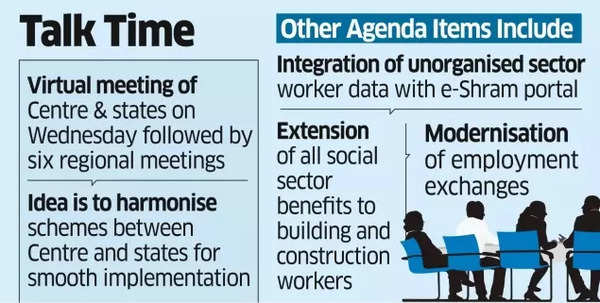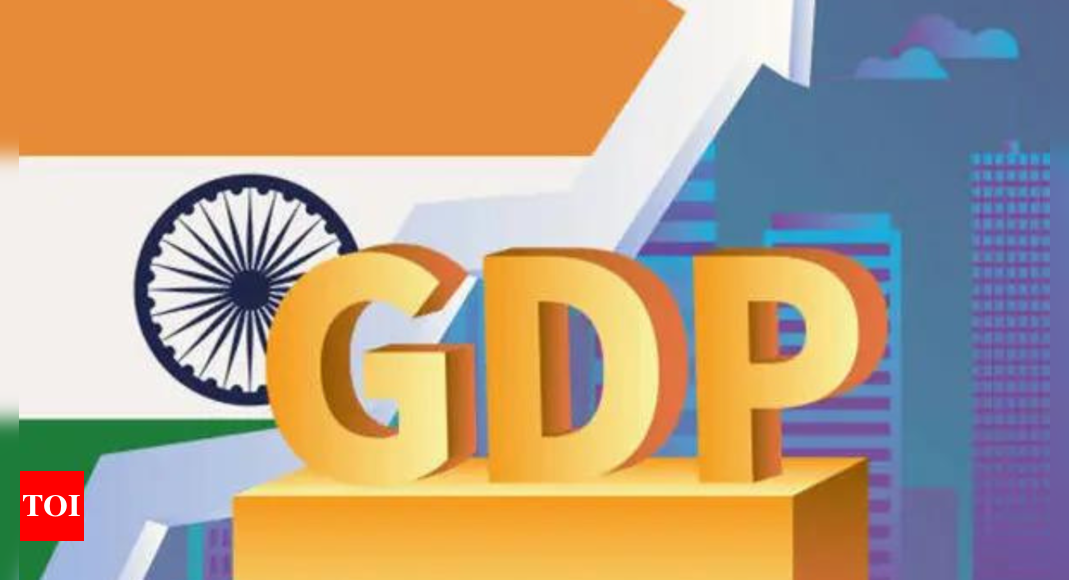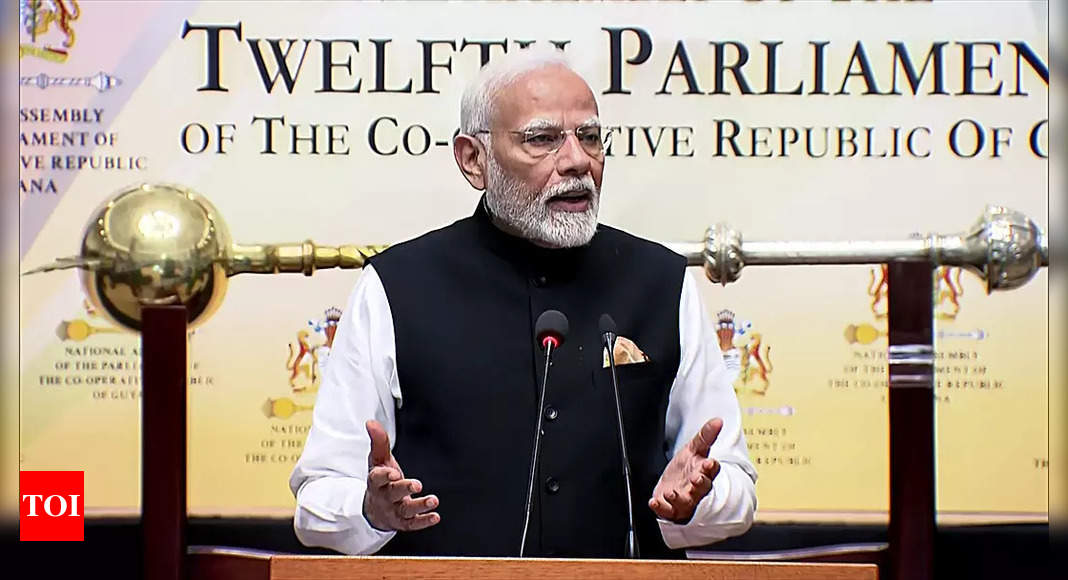
The 2024-25 budget has proposed three employment-linked incentive schemes, to be administered by the ministry of labour and employment, aimed at creating 29 million formal jobs.
According to an ET report quoting government officials, the labour and employment ministry will conduct a virtual meeting with the states and UTs on Wednesday, followed by six regional meetings from August 30 to October 4. These meetings will focus on labour codes, employment generation, integration of e-Shram portal, and extension of social security benefits to building and other construction workers.

Centre State talks for jobs
An official was quoted as saying, “The government wants to ensure smooth roll out of the employment-linked incentive schemes as well as the labour codes. Since, labour is a concurrent subject, the Centre is keen that all states are on board before the roll out of these.”
The meeting is expected to address the gaps and divergences identified in the draft rules of the states compared to the central rules of the four labour codes, to ensure uniformity across the country for ease of compliance. “Further, preparedness of states and union territories on other aspects of requirements of labour reforms will also be assessed,” the official added.
The Ministry of Labour and Employment, under the guidance of Secretary Sunita Dawra, convened a virtual meeting with state representatives in June to encourage them to finalize the draft rules for the four labour codes and ensure alignment with the central rules. This step aims to prevent legal challenges that may arise post-implementation of the codes.
According to sources, the upcoming agenda will prioritize employment-related matters, including the measurement of employment, incentives linked to employment, national carrier service, and the modernization of employment exchanges. It is important to note that state governments and Union Territories have direct administrative and financial control over employment exchanges.
Furthermore, the central government will encourage states to integrate their data for unorganized workers with the e-Shram portal. This integration will enable states to utilize the portal data for extending state welfare schemes to unorganized workers, after conducting eligibility verification. Additionally, the Centre will push for expanding the coverage of central sector schemes to include building and construction workers.
During the meetings, all states will be obligated to provide updates on the progress made and share best practices across the key agenda items. This sharing of information will facilitate the adoption of successful strategies by other states. To ensure widespread participation, regional meetings are expected to take place in various cities, including Bengaluru, Guwahati, Rajkot, Bhubaneswar, Lucknow, and Chandigarh.







